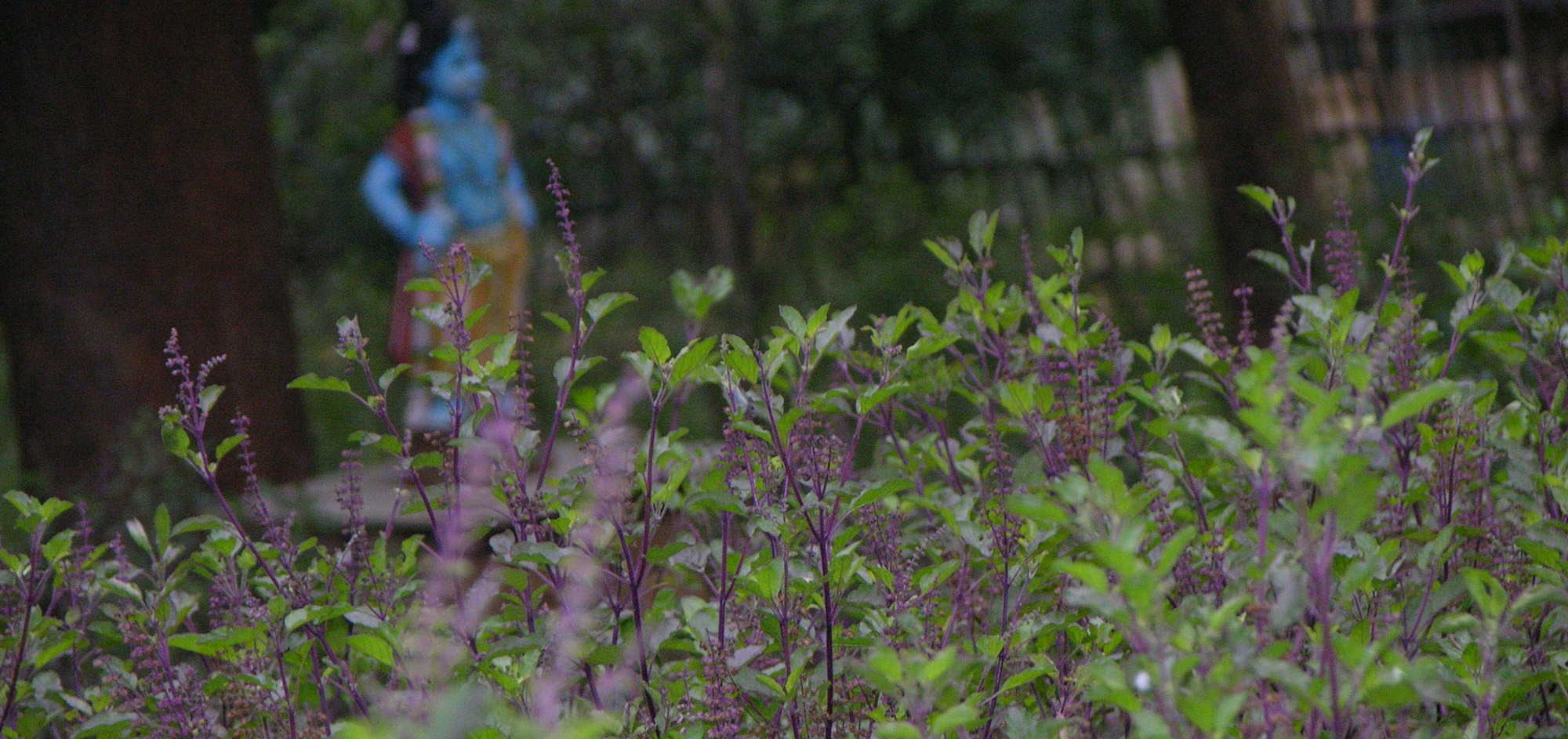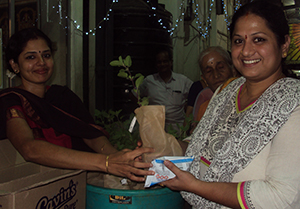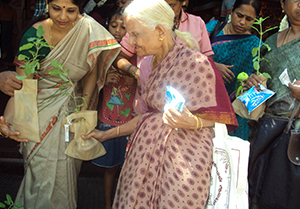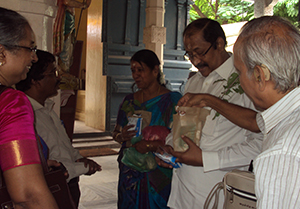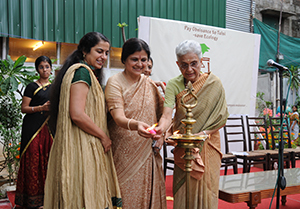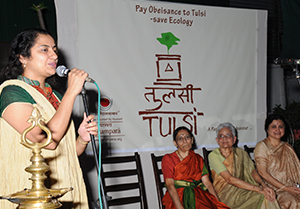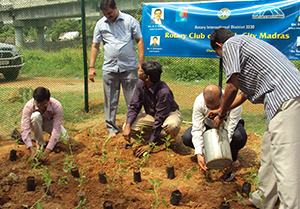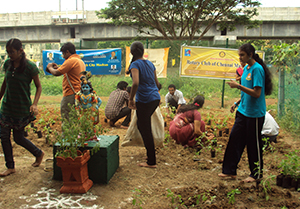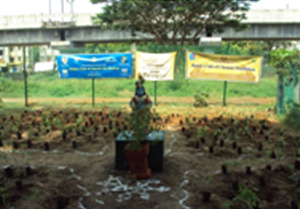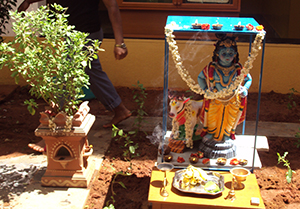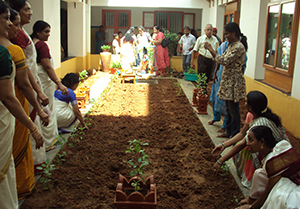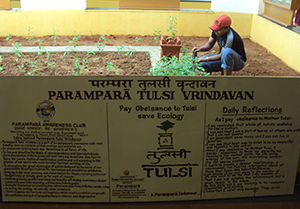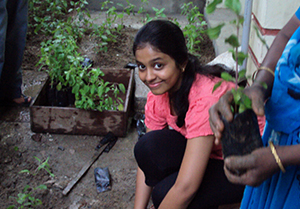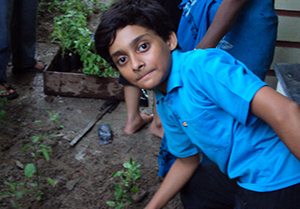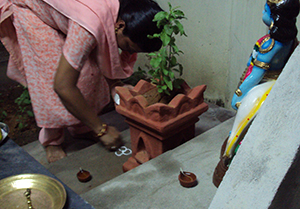Parampara Tulsi Movement
Why the Tulsi Movement was started ?

Wisdom can only be received in a state of Shraddha – reverence. Reverence is the first step to growth. Shraddha, an integral part of the Indian ethos, has been substantially lost and diluted with the passage of time. “Bringing back Shraddha, so as to prepare the mind for wisdom and true fulfilment” this is the purpose of the Tulsi movement.
The simple act of worshipping Tulsi everyday, leads us to realize the precious truth that all creation nurtures and teaches us. We are part of a larger intelligence and to this higher power, we pray, her protection we seek. In understanding her we understand ourselves, in loving her, we love ourselves. Conversely, neglecting her we lose ourselves. In destroying her, we destroy ourselves.
(for more information please read the article “Why Tulsi ?”- A note by our Trustee Manjulika Jhaver)
The Tulsi movement (started in 2000) also endeavors to highlight the significance of Tulsi in preserving our environment, its wonderous properties as a healer and its role in keeping the body and mind calm.
The Parampara Tulsi Movement
TulsiSeva: Parampara has distributed over 13 lakhsTulsi saplings till date.
Tulsi Vrindavans: Parampara has created over12TulsiVrindavans in the city.
TulsiUtsav: Parampara holds periodic events like Tulsi Vivah&TulsiUtsav,
to create awareness, especially amongst children, on the benefits of Tulsi to the body , mind and soul
Tulsi Seva
Parampara has distributed over 13 lac Tulsi saplings to date.
Tata-Tetley's association with Parampara
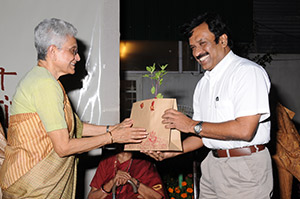
Felicitating Sri Ramesh of Pothys
Parampara and Tata-Tetley came together to start the “Tulsi blessings” initiative. Under this association one rupee from every pack of Tulsi Tata-Tetley tea people buy, was contributed towards the planting of a Tulsi sapling. Under this association Parampara donated 2500 Tulsi saplings on behalf of Tata-Tetley at various temples and religious organizations. Other Organizations that participated in Parampara’s Tulsi Sapling Distribution include Cavinkare, Pothys, Vummidi and Tulsi Silks.Pothys in particular has made an invaluable contribution to the Parampara Tulsi Movement.
Parampara Tulsi Sapling Distribution at:
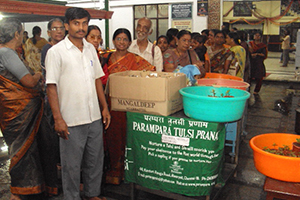
Anantha Padmanabha Swamy Temple
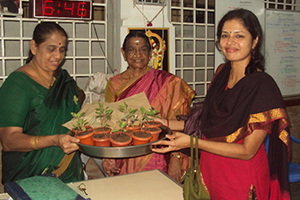
Krishna Temple
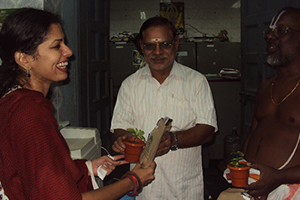
Parthasarathy Temple
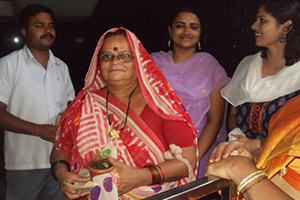
Shirdi Sai Baba Temple
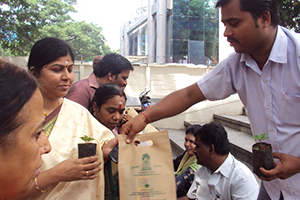
Sringeri Sharada Temple
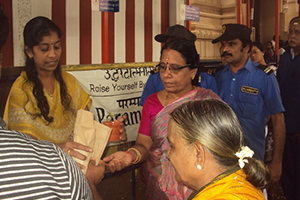
Anjaneya Temple
Tulsi Utsav
Parampara holds periodic events like Tulsi Vivah & Tulsi Utsav, besides distributing literature on the sacred Tulsi. Tulsi Vivah is the wedding of Tulsi with Maha Vishnu which falls on the 11th day of the waxing moon in the month of Kartik after Deepavali. It is called the Devotthani Ekadasi (The day of awakening of the Devas. Parampara celebrated Tulsi Vivah for around 300 invitees )
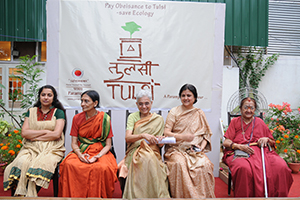
Chief Guests at Tulsi Vivah

Manjulika Jhaver Speech
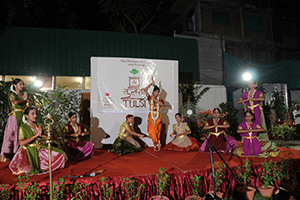
Dance Performance by School Students
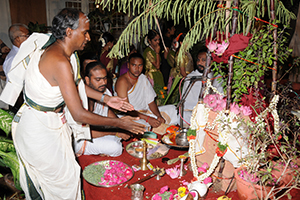
Tulsi Vivah Pooja
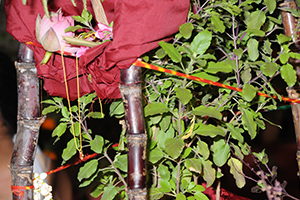
Tulsi Vivah Pooja
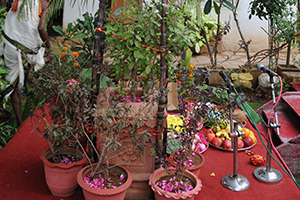
Tulsi Vivah Pooja
Tulsi Vrindavans
Parampara has established Tulsi Vrindavans in several schools, colleges and residential complexes. The aroma emanating from the Tulsi plants purifies the surrounding air, the plants releases ozone, an unstable form of oxygen that helps to break down pollutants and repel disease-carrying organisms - viruses,bacteria and insects. The Vrindavan thus create a micro climate of their own and thus have an uplifting and strengthening effect on the body as well as mind.
The Vrindavan will provide a serene, sylvan surrounding. The aroma from the Tulsi plants will provide an ambient environment. As Tulsi is sattvic in nature the Vrindavan has a tremendous positive impact on the mind, it helps us to stay calm and focussed. Caring for the plants in the Vrindavan will instil reverence (shraddha) and sensitivity to the environment especially in the children. It will also help them connect to the Indian value system of nurturing nature
Parampara Tulsi Vrindavan at:
Harishree Vidyalaya
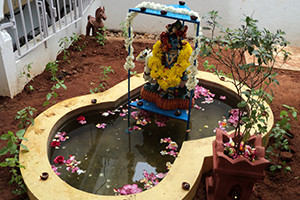
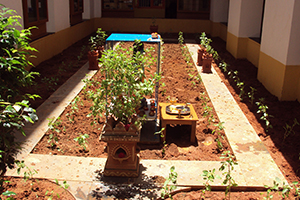
PSBB School
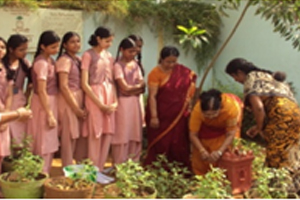
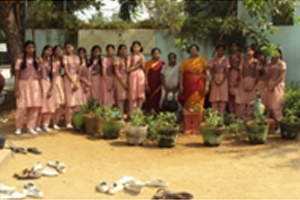
Adyar Cancer Hospital
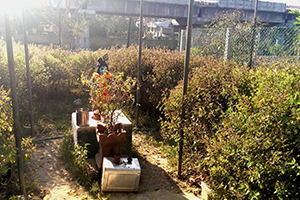
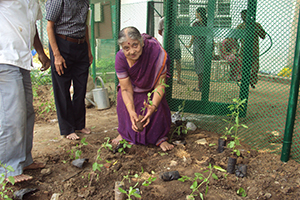
MGR School
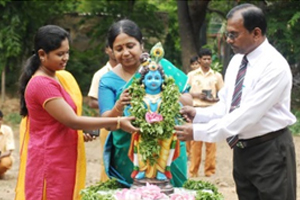

Why set up a Vrindavan ?
Tulsi is renowned both in the scriptures and by science as a purifier of body, mind and environment! A beautiful Tulsi Vrindavan is a repository of peace, serenity and rejuvenation in the middle of our hectic day. To step into the Vrindavan and breathe in the aromatic fragrance of the Tulsi, gives us the strength we need to carry on with our daily activities. Her energies are sure to revive our bodies and cleanse our spirit. After all she is an embodiment of Sattva.

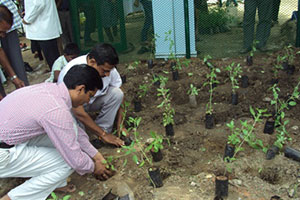
Picture of Dr Shantha (Padma Bhusahn and Padma Vibhushan awardee) attending the inauguration of Parampara Tulsi Vrindavan at cancer hospital
Few people can set up a full-fledged Vrindavan in their homes. Parampara therefore has made it possible for many people in Chennai to access Vrindavans in public places like schools, residential complexes and hospitals. Vrindavans may also be set up in Parks and temples where elderly and youth alike may use the sattvic energy of Tulsi to raise their physical and mental strength and purity. A vrindavan is a place to still your mind and access the deep reservoir of healing energy from this divine plant, created verily for the purpose of healing and uplifting us. Let us come together and create Sattva with the help of Tulsi !
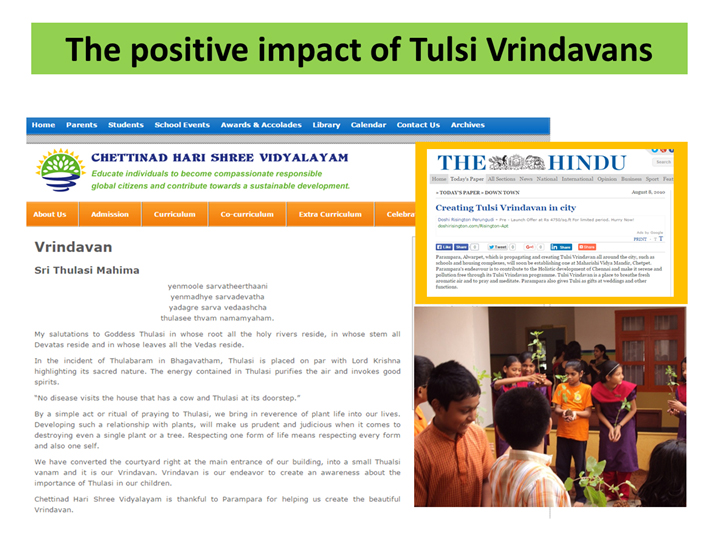
Spiritual significance
The Holy Tulsi adorns the Gods and Divine Bhaktas. The thulabharam leela conveys the spiritual efficacy of Tulsi. No neivedhyam (food offered to deities) is acceptable unless her leaves form a part. She sanctifies even water – The ultimate purifier! Her presence is needed beyond life too - Her touch raises departing souls to heaven.
Ecological value
Tulsi gives out oxygen for 20 hours and Ozone for 4 hours every day.
It purifies air of various pollutants. Its natural ether fragrance drives away mosquitoes and other pests.
Scientific Research
Of all the herbs used within Ayurveda, Tulsi (Ocimum sanctum Linn) is preeminent, and scientific research is now confirming its beneficial effects.
The pharmacological actions of Tulsi help the body and mind cope with a wide range of chemical, physical, infectious and emotional stresses and restore physiological and psychological function.
Protection and detoxification
Many of the physiological benefits of Tulsi can be attributed to its ability to assist with the body's internal housekeeping and protection of the body from toxin-induced damage. These functions are often attributed to Tulsi's high content of phenolic compounds and anti-oxidant properties.
Adaptogen:
There is mounting evidence that Tulsi can address physical, chemical, metabolic and psychological stress through a unique combination of pharmacological actions. Tulsi has been found to protect organs and tissues against chemical stress from industrial pollutants and heavy metals, and physical stress from prolonged physical exertion, ischemia, physical restraint and exposure to cold and excessive noise.
Anxiolytic and Anti-depressant
Tulsi has also been shown to counter metabolic stress through normalization of blood glucose, blood pressure and lipid levels, and psychological stress through positive effects on memory and cognitive function and through its anxiolytic and anti-depressant properties.
Antimicrobial
Tulsi's broad-spectrum antimicrobial activity, which includes activity against a range of human and animal pathogens, suggests it can be used as a hand sanitizer, mouthwash and water purifier as well as in animal rearing, wound healing, the preservation of food stuffs and herbal raw materials . Cultivation of Tulsi plants has both spiritual and practical significance that connects the grower to the creative powers of nature, and organic cultivation offers solutions for food security, rural poverty, hunger, environmental degradation and climate change. The use of Tulsi in daily rituals is a testament to Ayurvedic wisdom and provides an example of ancient knowledge offering solutions to modern problems.


